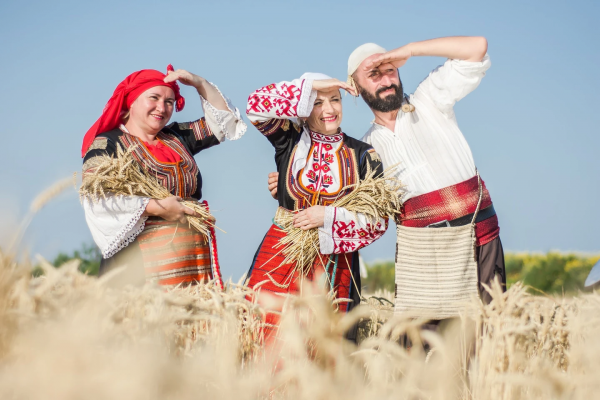Why do Bulgarians shake their heads to say yes?
Why do Bulgarians shake their heads to say yes?
This is the first thing you will notice as soon as you start traveling in Bulgaria - Bulgarians are one of the few peoples in the world who shake their heads when they say yes and nod when they say no. But how did it happen?

Although Bulgarians know they are different in this aspect, they rarely consider why this is true. Charles Darwin was one of the first scientists to become interested in this topic. He asked missionaries from all over the world to send him information about how people express "yes" and "no" with their heads, and it turned out that shaking and nodding their heads are universal signs. Darwin suspected that this is coded in our genes, although it should also have cultural significance (when you nod, it's like a bow, showing respect). Even people born blind adhere to the universal rule.
Theory 1
One theory why the Bulgarians turned their genetic gestures on their head has to do with five centuries of Ottoman rule. When the Ottomans conquered Bulgaria, they wanted the locals to change their religion from Christianity to Islam, and if they refused, they were often killed. So, according to the legend, the Bulgarians decided to swap the two meanings, and when asked if they wanted to become Muslims, they nodded, meaning "no" in their hearts.
Another hypothesis finds a connection between the Bulgarian and Indian way of shaking their heads. Indians are also known for shaking their heads vigorously, often in a manner that foreigners don't understand. Centuries later, and thanks to numerous wars and invasions, this tradition could have come from distant India through the Ottoman Empire to the Balkans. With the exception of Bulgaria, these head signs can also be seen in Albania, Greece, and Turkey.
The third version is looking for a connection between the Proto-Bulgarians with their nomadic lifestyle and incomprehensible cultural differences. They may have copied their horses, which shook their heads or nodded depending on whether there was food in front of them. The impudent Proto-Bulgarians may have stuck to tradition in order to preserve their cultural identity.
One final warning…
Now that many Bulgarians are traveling or living abroad, the practice has begun to change, especially in the big cities. More and more people are using universal signs or just mixing both, which makes deciphering the meaning even more difficult.

Although Bulgarians know they are different in this aspect, they rarely consider why this is true. Charles Darwin was one of the first scientists to become interested in this topic. He asked missionaries from all over the world to send him information about how people express "yes" and "no" with their heads, and it turned out that shaking and nodding their heads are universal signs. Darwin suspected that this is coded in our genes, although it should also have cultural significance (when you nod, it's like a bow, showing respect). Even people born blind adhere to the universal rule.
Why Bulgarians are different – theories:
Theory 1
One theory why the Bulgarians turned their genetic gestures on their head has to do with five centuries of Ottoman rule. When the Ottomans conquered Bulgaria, they wanted the locals to change their religion from Christianity to Islam, and if they refused, they were often killed. So, according to the legend, the Bulgarians decided to swap the two meanings, and when asked if they wanted to become Muslims, they nodded, meaning "no" in their hearts.
Theory 2
Another hypothesis finds a connection between the Bulgarian and Indian way of shaking their heads. Indians are also known for shaking their heads vigorously, often in a manner that foreigners don't understand. Centuries later, and thanks to numerous wars and invasions, this tradition could have come from distant India through the Ottoman Empire to the Balkans. With the exception of Bulgaria, these head signs can also be seen in Albania, Greece, and Turkey.
Theory 3
The third version is looking for a connection between the Proto-Bulgarians with their nomadic lifestyle and incomprehensible cultural differences. They may have copied their horses, which shook their heads or nodded depending on whether there was food in front of them. The impudent Proto-Bulgarians may have stuck to tradition in order to preserve their cultural identity.
One final warning…
Now that many Bulgarians are traveling or living abroad, the practice has begun to change, especially in the big cities. More and more people are using universal signs or just mixing both, which makes deciphering the meaning even more difficult.
21-01-2023

 Helpful information
Helpful information

